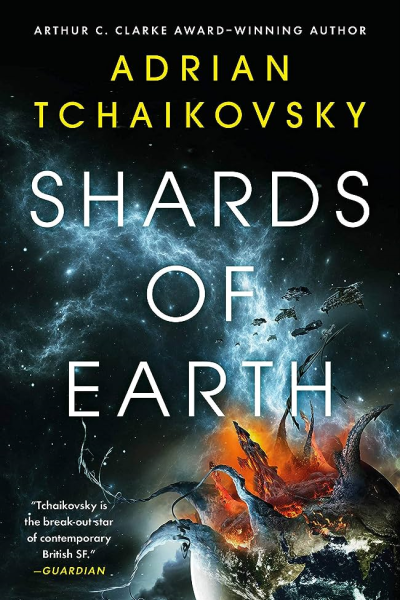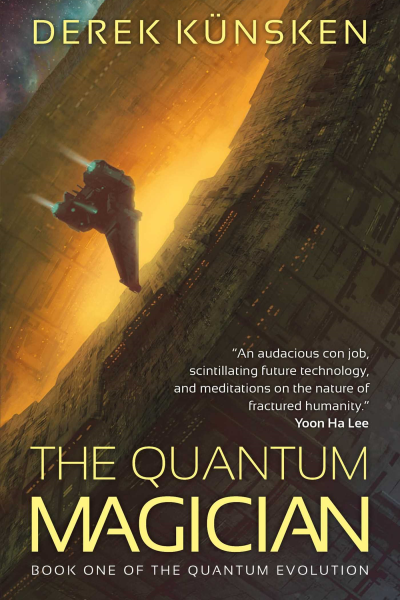The Final Architecture
The Final Architecture (2021) – Adrian Tchaikovsky

The Final Architecture is a trilogy that consists of the books Shards of Earth (2021), Eyes of the Void (2022) and Lords of Uncreation (2023) by Adrian Tchaikovsky. These books were vastly different than the previous books I had read by the same author which was the Children of Time trilogy. I had read that the author had studied zoology which made a lot of sense in the context Children of Time trilogy. I was under the impression that all of his books would feature some kind of deep dive into the psychology, biology and culture of hypothetical forms of sentient life. The Final Architecture has plenty of this as well, but it is much closer to what I would consider a traditional space opera with political factions and space militaries at war. Some of the factions just happen to be aliens with biology not typically associated with intelligent life and with motives that are often incomprehensible.
The book starts off on a run down salvage ship called the Vulture God with a ragtag group of misfits that feels reminiscent of space westerns such as Firefly. Our main protagonist Idris is a seemingly unaging human. During the first war against the architects, which are a moon sized species that have the power to reshape entire planets, Idris underwent a procedure to allow him to become an intermediary. This is a highly experimental procedure with a very low chance of success. The goal being to reshape the persons mind to mimic that of the only human who was born naturally with the ability to perceive unspace and allow them to touch mind to mind with the architects. Merely informing the architects of their presence is often enough to convince them to turn away. Now many decades later at the start of the book Idris is working on the salvage ship in order to escape the atrocities of the past as well to prevent the current colonial human powers called the Liason Board from effectively enslaving him as an unspace pilot. The architects have not been seen in all of time and it is believed by many they are gone for good.
The plot takes off when our secondary protagonist Solace who is a part of a separate faction of all female genetically engineered humans called the Parthenon is sent to investigate one of the only known intermediaries not current under the control of the Liason Board. Solace being an old wartime friend of Idris is allowed to accompany the crew of the Vulture God on a salvage operation while she attempts to convince Idris to assist the Parthenon. During a would be routine salvage operation the crew makes a discovery that has far reaching ramifications.
What I like most about these books is surprisingly also what I dislike the most. The sense of mystery that is set up is both brilliant and debilitating. The frequency at which the main character mentions being incredibly close to figuring out the precise nature of unspace and the architects is so high that at times the book seems to break the fourth wall to poke fun at it. Which brings us to unspace which is both the most fascinating fictional science concept in the book as well as this increasingly vague undefinable concept that seems to only get more confusing as the book progresses. Other species such as the Essiel seem to have no problem understanding the very nature of unspace and the universe, but it would be far too convenient if they simply passed on this knowledge to humanity and other species. They also have a religious like belief that only they should be allowed to have this information. The variety of sentient alien life is extravagant. They don’t go into as much detail of their biology or psychology, but there is a lot about their various cultures. Including the culture of the Parthenon with it being a completely uniform biologically engineered all-female faction.
As a space opera enthusiast I highly enjoyed these books. The mysteries with their abstract nature are consistently interesting to think about. The action all the way from ship to ship battles to hand to hand combat were thrilling. However, no matter how much I enjoyed reading these books I don’t believe any more books set in this universe are necessary. It feels like a complete set where any more or any less would not be as solid of a series.


